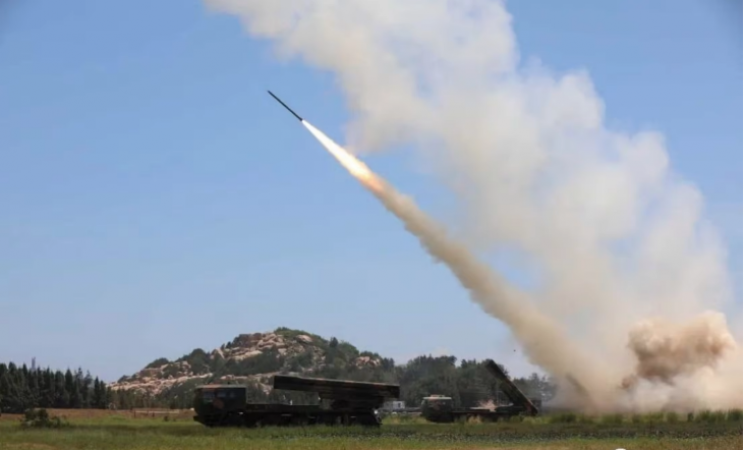
Taiwan: As mainland China invades the island, multinational corporations in Taiwan are preparing to withdraw their resources and personnel.
While no one is planning to leave, analysts claim that the People's Liberation Army (PLA) military exercises have prompted some businesses to make contingency plans or review older ones that could be in the event of war or a military blockade. can be. They were created to protect people and property.
Following US House Speaker Nancy Pelosi's visit to Taiwan last week, which rejected Beijing's repeated warnings, the PLA on Thursday began military drills to encircle the island.
Beijing views Taiwan as a province that has been separated from the mainland and should probably be united with it by force.
The United States and other nations that have diplomatic relations with Beijing recognize the one-China principle, according to which Taiwan is part of China. However, they cannot express it that way. Washington does not have an official position on the status of Taiwan, but it opposes any military invasion of the island.
According to Rupert Hammond-Chambers, President of the US-Taiwan Business Council, "Companies are developing better structures to monitor and analyze geo-strategic changes, while writing scenarios for employees and supply chains when Taiwan is blocked.
"The uncertainty over lasting peace in the Taiwan Straits and the lack of viable alternatives to disrupt their supply chains is adding to the tensions that companies are feeling."
According to Dale Buckner, CEO of Global Guardian, seven Fortune 500 companies have requested an explanation of the "triggers" that would allow the removal of personnel, property and assets from Taiwan.
According to Buckner, some businesses are taking this too seriously, "because they don't want to experience what happened in Russia, where they lost billions of dollars in assets, both financial and difficult."
According to market research company Statista, Russia's conflict in Ukraine has resulted in losses of US$100 million to US$24 billion for at least 37 multinational corporations, including banks, energy companies and automakers.
Multinational corporations such as Microsoft and Google have increased their presence in Taiwan over the past ten years to recruit top talent in areas such as artificial intelligence. For iPhone parts and assemblies, Apple relies on several Taiwanese companies.
Taiwan's Ministry of Economic Affairs reported 729 foreign investment projects totaling US$3.1 billion from January to April this year, compared with the same period in 2021.
Statistics from Trading Economics show that Taiwan received an average of US$569.95 billion in foreign direct investment between 1996 and 2022.
According to Gareth Leather, senior emerging Asia economist at Capital Economics in London, "[military exercises] result in increased risk for foreign companies and conflicts are likely either accidental or intentional.
According to Hammond-Chambers, no council members are actively considering leaving, and the companies are not expected to change the way they do business in Taiwan in the near future. According to him, investment in Taiwan will continue because of "commitments" in research and development and perceptions that Taiwan provides "better" intellectual property protection.
According to John Eastwood, a partner at Taipei law firm Eager, foreign companies will remove their assets and employees if they believe a military build-up signals an imminent attack.
According to Eastwood, the 90-mile (145-km) ocean requires some logistical planning that will be explored well in advance by satellite or other technologies. "China, in their estimation, is not prepared to attack," he said. When the shooting starts, those migrants will take their families home on commercial flights.
According to Eastwood, most American companies operating in Taiwan can absolve themselves of contractual obligations by citing war or a military blockade. To increase transportation and insurance costs, many will renegotiate contracts.
According to Eastwood, after the removal of assets and personnel, American and European businesses that provide equipment and products to Taiwan's US$115 billion semiconductor industry, which is the largest in the world, "may be at a slight loss".
Despite warnings, analysts say foreign multinational corporations will not necessarily give up if mainland China takes control of Taiwan.
The seizure of foreign assets in Taiwan by the mainland could result in harsh economic sanctions, according to Stuart Orr, dean of the Melbourne Institute of Technology's School of Business.
Russia will no longer cooperate with US inspections of its nuclear arsenals
Biden "concerned" about China's drills in Taiwan but not believe Beijing that will escalate
Chinese mother calls out "poor" bike-riding teacher saying he makes studying appear pointless